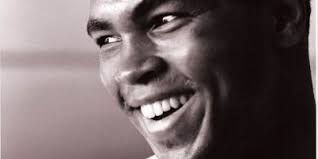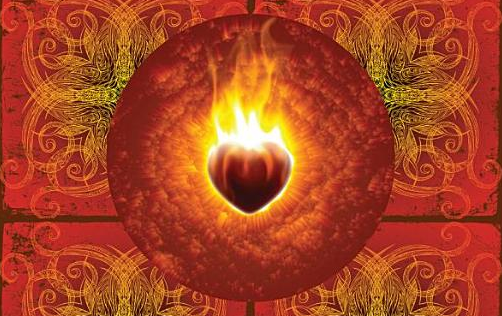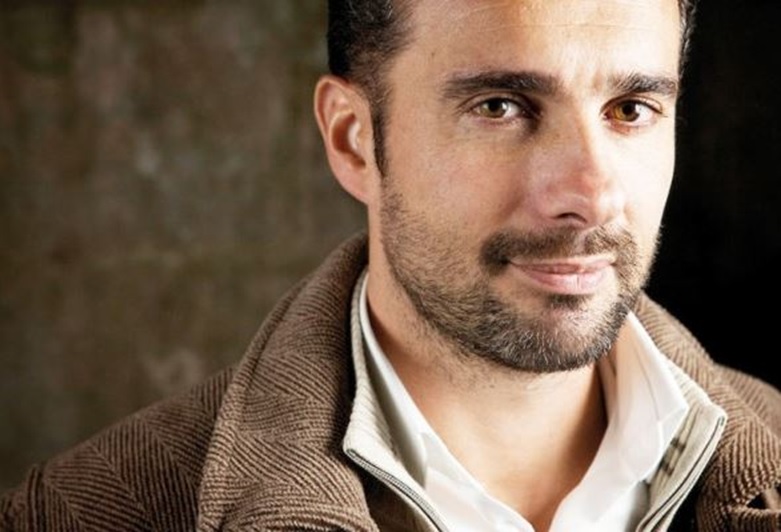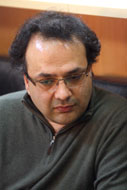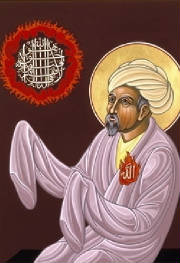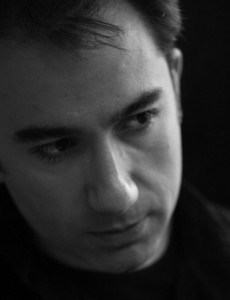 Islam without Extremes, A Muslim Case for Liberty by Mustafa Akyol (W. W. Norton & Company , 2011) makes the case that Islam and liberalism can and must go together. He defines liberalism this way: “a political and economic system which limits the powers of the state, and gives individuals, and their voluntary associations, the freedom to shape their destinies.” In his view, while governments necessarily deal with crime in order to protect the commons, no state apparatus, whether non-Muslim or Muslim, should be enforcing morality upon the individual.
Islam without Extremes, A Muslim Case for Liberty by Mustafa Akyol (W. W. Norton & Company , 2011) makes the case that Islam and liberalism can and must go together. He defines liberalism this way: “a political and economic system which limits the powers of the state, and gives individuals, and their voluntary associations, the freedom to shape their destinies.” In his view, while governments necessarily deal with crime in order to protect the commons, no state apparatus, whether non-Muslim or Muslim, should be enforcing morality upon the individual.
Introduction by Haroon Moghul: It seemed a few years ago that the post-9/11 spike in the field of Islamic studies was waning, no doubt accelerated by economic crisis and fatigue with a long, uncertain war. But then the uprisings in Tunisia and Egypt brought Islam, Arabs, and the Middle East, back to global attention.
This interest will only continue to grow; the direction of the Middle East will be crucial to how our world turns out in coming decades. And with Islamist parties triumphing in recent elections across a democratizing region, we in America are ever more concerned—and confused.
Who can we turn to for some insight, and not only thought, but actual ideas? What voices over there can we learn from—and should we listen to?
I had the chance to speak with Mustafa Akyol, author of Islam Without Extremes: A Muslim Case for Liberty; Akyol is a Turkish media personality, newspaper columnist, and intellectual. He also gets to live in Istanbul, which should properly go on his resumé.
Many have argued Turkey’s experience is deeply important to the Middle East (and see my post this weekend about Newt Gingrich’s longtime admiration for Kemal Ataturk). Whether or not you agree, Akyol deserves to be more widely read, as he pushes well past the typical clichés—for him, Islam and liberalism are not merely reconciled, but—well, you’ll see.
HM: Tell me a little bit about how and why you wrote this book.
MA: This book is mainly about the problem of freedom in Islam. I argue that Islam, at its very core, is a religion that liberated the individual from the bond of the tribe and similar collective bodies. But I also show how the initial impetus of the faith was partly overshadowed as a result of some early theological controversies, and, moreover, political decisions. This also means that some of those early debates can be reopened, and coercive elements in Islamic law and culture can be reformed. And I am saying all these within a particularly Turkish outlook, as I explain the little known history of “Muslim liberalism” that emerged in the late Ottoman Empire and modern-day Turkey.
Who did you write this for?
Akyol: I wrote this for both Muslims and non-Muslims who believe that Islam and liberal democracy are fundamentally incompatible. Obviously, I disagree with them. I rather want to show them that a genuinely Islamic yet liberal view of the world is possible. Muslims can tolerate the “freedom to sin,” for example, not because they condone sin, but that its judgment should be left to God.
HM: Can you explain what you mean by liberalism?
Akyol: By liberalism, I mean a political and economic system which limits the powers of the state, and gives individuals, and their voluntary associations, the freedom to shape their destinies. I think liberty has been a value throughout history, but liberalism became a full-fledged ideology in the modern age, for the modern state threatened liberty in unprecedented levels.
I also think that today liberalism presents the best medium for Muslims to live Islam in the various ways that they understand it.
HM: Let me push you a little bit here. I would argue that most interpretations of Islam place a strong emphasis on the social, the communal, often above the individual—and if we stress the liberation of the individual from larger collectives, does Islam play any role in the great social questions of our time? Should Islam also speak to the intermediary institutions, between state power and individual life, to temper that power and protect that individual?
Akyol: Of course I am not saying that Islam does not have a sense of the community. It certainly does. Moreover, that sense implies a strong basis for civil society, which is of course very important for empowering and protecting the individual in the face of threats coming from the modern state.
However, I believe that the Qur’an, with its strong emphasis on the individual’s personal faith and deeds, presented a more individualistic worldview than some Muslims appreciate. I actually believe that the individualism of the Qur’an was gradually overshadowed by a more communitarian mindset that shaped Islam in its formative centuries. I explore such differences between the Qur’an and the post-Qur’anic tradition, and how they came to be, in my book.
HM: You say Muslims should tolerate sin. But of course we don’t tolerate some sins—murder, cheating, lying in certain circumstances. Are there some sins that we must object to socially? And if it isn’t a matter of state power, should Muslims still condemn sins?
Akyol: You make a great point—and that is something I discuss in my book chapter, “The Freedom to Sin.” There, I suggest a distinction between sin and crime. Sins are acts of personal disobedience to God, like drinking wine or refraining from daily prayer. But crimes are acts that hurt other people, like murder or theft. Most crimes are also sins, but I am saying that not all sins should be considered crimes. And I am saying that by looking at what the Qur’an really penalizes and what it does not.
HM: You mention the distinction between sin and crime. However, many Muslims—like many people of other faiths—believe that sins cause genuine harm in the world. For example, that sinning causes God to, say, withhold rain from the earth. This might lead religious folks to believe that sins, too, should be socially punished. What do you say to that?
Akyol: Well, first I would disagree with the theology there. The Qur’an tells us that some specific societies in history—such as Sodom and Gomorrah—were destroyed by God via natural disasters, but I think those are exceptional miracles and not the norm. The norm, I think, is that natural disasters happen via natural causes which God has set in place, and are not related with our sins. Earthquakes really do not selectively hit cities of vice, such as, say, Las Vegas. They just hit the cities that are placed on tectonic faultlines. Or rain patterns, which really do not show any correlation with levels of godliness or godlessness.
Even if people believe that this or that disaster has happened because of this or that sin, this subjective idea cannot be the base of objective laws that will be imposed on us. Shall we impose vegetarianism by law, for example, because some Buddhists see meat-eating as the source of all evil? We have the right to believe in our theologies, but we cannot impose them on all people.
HM: I walk through the bookstore, see your book, and as a Muslim I think, another book about Islam that frames us around extremism. Do you think that perhaps framing Islam around extremism, even to push back against it, might just reinforce the same narrative?
Akyol: Well, “extremism” is a vague term, and I really wanted to focus on something more specific: authoritarianism in Islamic law and culture. In other words, this book is not about why Muslims should reject terrorism—the overwhelming majority of the world’s Muslims already do that. But not all of them tend to be that liberal when it comes to issues such as apostasy, blasphemy, sin, or different interpretations of Islam. That’s why one scholar said that there is a problem of “illiberal moderates” in the Islamic world. That is the problem that I am really focusing on.
HM: You have a lot of reach in Turkey. And of course, Islam in Turkey is increasingly seizing the world’s attention. From your perspective, how do you see Islam in Turkey right now? What are you pleased with, and what are you worried about?
Akyol: Of course, we Turks still have lots of problems with our own politics and culture. Yet it is fair to say that Islam in Turkey has a much healthier experience with democracy. Many people would readily say that Turkey owes this to Ataturk and his ultra-secularist reforms. But, in my book, I argue that we actually owe our Islamo-democratic synthesis to the opponents of the strict Ataturkist tradition, such as Menderes of the ’60s, Ozal of the ’80s and most lately Erdog an. Today, the mainstream Islamic view in Turkey is at peace with the secular (but not secularist!) state, and how this came to be is a curious story that I relate in my book.
HM: Can you expand on the distinction between the secular state and the secularist state?
Akyol: Sure. A secular state is neutral to religion, and respects religious practices unless they cause harm to individuals. A secularist state, however, bears an ideological hostility to religion, and wants to secularize society by banning religious practices or institutions. Most communist dictatorships of the past century were secularist states. Kemalist Turkey, too, has been a secularist state—which banned the headscarf, Sufi orders, or religious education—and it has given a bad name to secularity among the world’s Muslims. Luckily, though, that excessive secularism of Turkey has been defanged to some extent in the recent years.
I want to elaborate on this distinction between secular and secularist. In places like Egypt, and potentially Libya and Yemen as well, democracy will throw forward explicitly Islamist parties, however much some of them might want to deny it (although Islamist doesn’t mean authoritarian). Do you think these parties can contribute to building democratic societies? Is it possible to build post-secular states, neutral between religion and secularism?
“Islamist” does not mean authoritarian, if it implies a political party that is inspired by Islamic principles and values, but articulates them within the rules of liberal democracy. The closest example to that seems to be Ennahda in Tunisia, and I am hopeful about its future. But other Islamist parties such as the Freedom and Justice Party of Egypt, an offshoot of the Muslim Brotherhood, still seem to believe in an “Islamic state” that will impose an “Islamic way of life” on society. The problem with that is not just authoritarianism. It is also that whomever imposes Islam via the state will be imposing the “Islam” that he or she understands.
But since no Muslim school of thought can claim an ultimate access to truth (as the “Postponers” of the 7th century realized, as I explain in my book), the state should be neutral when it comes to religious matters. Whether the Muslim Brotherhood of Egypt and its counterparts in other Arab countries will be humble enough to see that is the next big question.
HM: How do you see Islam faring in Europe? In America? Do you think the Arab Spring might make things better or worse?
Akyol: I think partly in America and more so in Europe, Islam suffers from being the religion of the immigrants. Immigrant communities sometimes have problems simply because of their “alienness,” and the unwelcoming-ness of their hosts, and these problems can appear as a friction between Islam and non-Islam.
Whenever I speak about this, I note that the EU member country with the highest percentage of Muslims in its population is not the UK, France, or Germany but Bulgaria. Yet you never hear about Bulgaria’s “Muslim question,” for its Muslims are native Turks and Pomaks who have been living in that country for centuries.
As for the Arab Spring, I am of course very supportive of it, for it is toppling or challenging the dictators who oppressed Arab societies for decades. (Right now, I am keeping my fingers crossed for the fall of the Baath tyranny Syria.) But democracies—let alone liberal democracies—do not emerge overnight, and the post-revolutionary countries will need some time and lots of effort to build them.
HM: I know this is a loaded question, but what is Islam’s purpose? Or, perhaps I’ll put it another way: What is it that attracts you, and keeps you affiliated with, this religion?
Akyol: Well, I believe Islam’s main purpose is the same with that of all other Abrahamic monotheisms: To make humans aware of their Creator and His intentions. In other words, it is primarily about connecting God and man. Of course, God, through the Qur’an, gives man some rules and principles that will guide his behavior to other men as well—that is where Islamic law comes from. But I also think that this law, in its divine origin, is intentionally limited and flexible, for social structures always change and laws should adapt to that change.
What keeps me affiliated with Islam? Well, its main purpose: I believe that I have a Creator, and Islam is the straightest path that I know to connect with Him.
HM: Let’s say I run a madrasa. (Note: I don’t.) What books, thinkers, ideas would you recommend to the next generation of Muslim scholars, theologians, and preachers?
Akyol: Well, if it were your madrasa, I am sure it would be a cool one, and I would be happy to support it. As for the religious curriculum, I would suggest, first, a good translation of and commentary to the Qur’an. Then a good book on the history of Islamic thought, which would expose the students to all the different colors of our religion that has evolved in the past fourteen centuries.
Among modern writers, I would suggest books by the late Alia Izzetbegovic, the “philosopher-king” and the brave leader of the Bosnians, Muhammed Abduh, Fazlur Rahman, and even Said Nursi, a Turko-Kurdish Islamic scholar and hero whose emphasis on “freedom” is little known outside of Turkey. Finally, I would also add the Bible to the curriculum. The Qur’an repeatedly refers to it, and it is a pity that we Muslims have taken very little notice of that.
HM: What’s next for you?
Akyol: Well, God knows that best. On my side, I am just expecting many talks and conferences in the year to come. But then I have other books in mind. Perhaps something with the title “Towards A Free Muslim Mind,” which will articulate a Muslim worldview that is genuinely religious but also consistently liberal. I am hoping to write a novel at some point, too—a novel that will put all my ideas into characters and events, and which will hopefully inspire the readers.
Interviewer: Haroon Moghul
RD associate editor Haroon Moghul is a fellow at the Institute for Social Policy and Understanding, a senior editor at the Islamic Monthly and a doctoral candidate at Columbia University. His work has appeared or he has been otherwise featured on CNN, BBC, History Channel, al-Jazeera, Today’s Zaman, and Tikkun. He is the author of The Order of Light (Penguin, 2006). Tags islam, liberal democracy, liberalism, mustafa akyol

